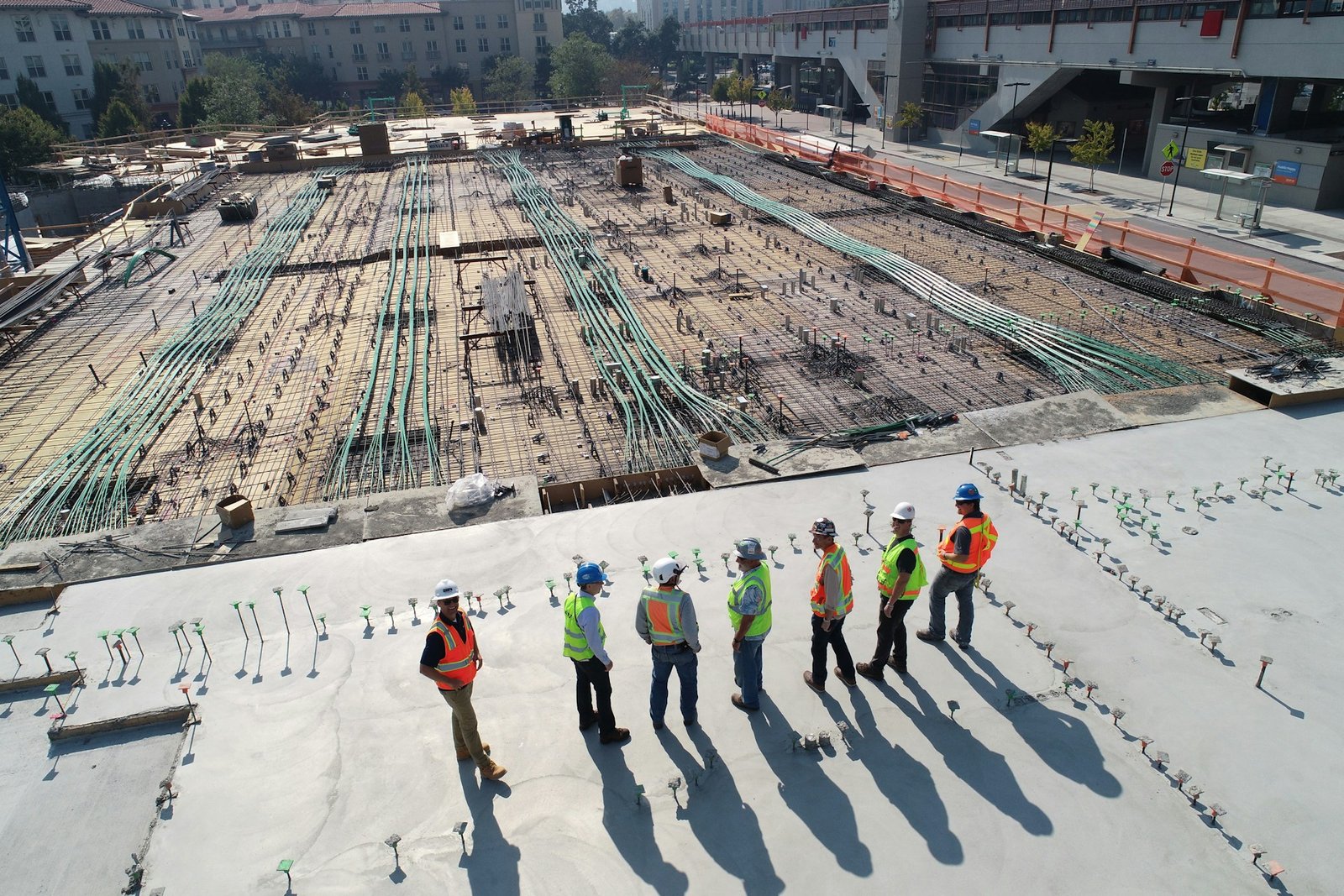Party wall construction is a critical facet of building projects, especially in densely populated urban areas or where properties share boundaries.
It involves the erection, modification, or maintenance of walls that serve as shared partitions between adjacent properties.

These shared walls, often termed ‘party walls,’ are pivotal in defining property lines and maintaining structural integrity. For builders and contractors, navigating the complexities of party wall construction requires understanding legal requirements, effective communication with neighboring property owners, and adherence to best practices to ensure compliance and neighborly relations.
This article dives into the nuances of party wall construction, offering insights into best practices and essential considerations for builders and contractors.
Understanding Party Wall Construction
Party wall construction is more than mere physical building; it represents a legal and social responsibility to both property owners and the broader community. Recognized primarily in jurisdictions such as the United Kingdom and the United States, laws and regulations, such as the Party Wall Act (UK), defines the rights and obligations of property owners concerning party walls. These laws typically prescribe procedures for serving notices, obtaining consent, resolving disputes, and establishing a framework for orderly construction activities.
Best Practices for Party Wall Construction
Here are the best practices to keep in mind during the construction of a party wall.
Legal Compliance
Builders and contractors must familiarize themselves with the legal requirements governing party wall construction in their jurisdiction. This includes understanding the provisions of relevant legislation, obtaining necessary permits or permissions, and ensuring compliance with building codes and regulations.
Effective Communication
Open and transparent communication with neighboring property owners is paramount to fostering positive relationships and minimizing conflicts. Builders and contractors should engage in proactive dialogue, providing advance notice of planned works, discussing potential impacts, and addressing concerns or queries promptly.
Thorough Surveying
Conducting a comprehensive survey of the party wall and surrounding structures is essential prior to commencing construction. A qualified surveyor from the expert service providers in the industry like party wall london can assess the wall’s condition, identify any existing defects or vulnerabilities, and recommend appropriate remedial measures or modifications.
Structural Design
Collaborating with structural engineers, builders, and contractors should develop robust structural designs tailored to the specific requirements of party wall construction. These designs should prioritize safety, durability, and compliance with relevant standards, taking into account factors such as load-bearing capacity, lateral support, and potential structural movement.
Construction Techniques
Employing appropriate construction techniques is crucial to safeguarding neighboring properties and minimizing disruption during construction. Builders and contractors should utilize methods such as controlled demolition, vibration monitoring, and temporary support systems to mitigate risks and ensure the stability of adjacent structures.
Boundary Disputes Resolution
In instances where boundary disputes arise, builders and contractors should approach such issues with sensitivity and professionalism. Seeking legal advice, engaging in mediation, and maintaining open lines of communication with all parties involved can facilitate amicable resolutions and prevent escalation.
Considerations for Builders and Contractors
Here are some considerations for builders and contractors to remember while constructing a party wall.
Comprehensive Insurance Coverage
Builders and contractors should procure adequate insurance coverage to protect against potential liabilities from party wall construction activities. This may include public liability insurance, professional indemnity insurance, and specific policies tailored to address risks associated with neighboring properties.
Documentation Management
Maintaining meticulous records and documentation throughout the construction process is imperative for evidencing compliance with legal requirements and addressing any disputes or claims that may arise. This includes retaining copies of notices served, permits obtained, survey reports, correspondence with property owners, and relevant construction drawings or specifications.
Timely Completion
Aiming for timely completion of construction works is essential to minimize inconvenience to neighboring property owners and mitigate the risk of disputes. Builders and contractors should adhere to agreed-upon schedules, proactively manage project timelines, and promptly communicate any delays or deviations to affected parties.
Noise and Dust Control Measures
Implementing effective measures to control noise and dust emissions during construction is vital for maintaining a harmonious relationship with neighboring properties. This may involve using sound barriers, employing dust control Sydney techniques, scheduling noisy activities during off-peak hours, and adhering to local noise ordinances or regulations.
Ongoing Monitoring and Maintenance
Even after construction works are completed, builders and contractors have a responsibility to ensure the ongoing stability and integrity of party walls. Providing property owners with guidance on proper maintenance practices, conducting periodic inspections, and offering support for any necessary repairs or maintenance can help preserve the longevity of party wall structures.

Conclusion
Party wall construction presents builders and contractors with unique challenges, ranging from legal compliance and technical complexity to neighborly relations and risk management. By adhering to best practices, maintaining open communication, and prioritizing safety and compliance, builders and contractors can successfully navigate the intricacies of party wall construction.
Moreover, building positive relationships with neighboring property owners through transparent communication, proactive engagement, and responsible construction practices is essential for achieving mutually beneficial outcomes and contributing to the overall well-being of the community. In essence, effective collaboration, meticulous planning, and adherence to ethical standards are the cornerstones of responsible party wall construction practices, ensuring both the structural integrity of buildings and the harmony of shared living spaces.






